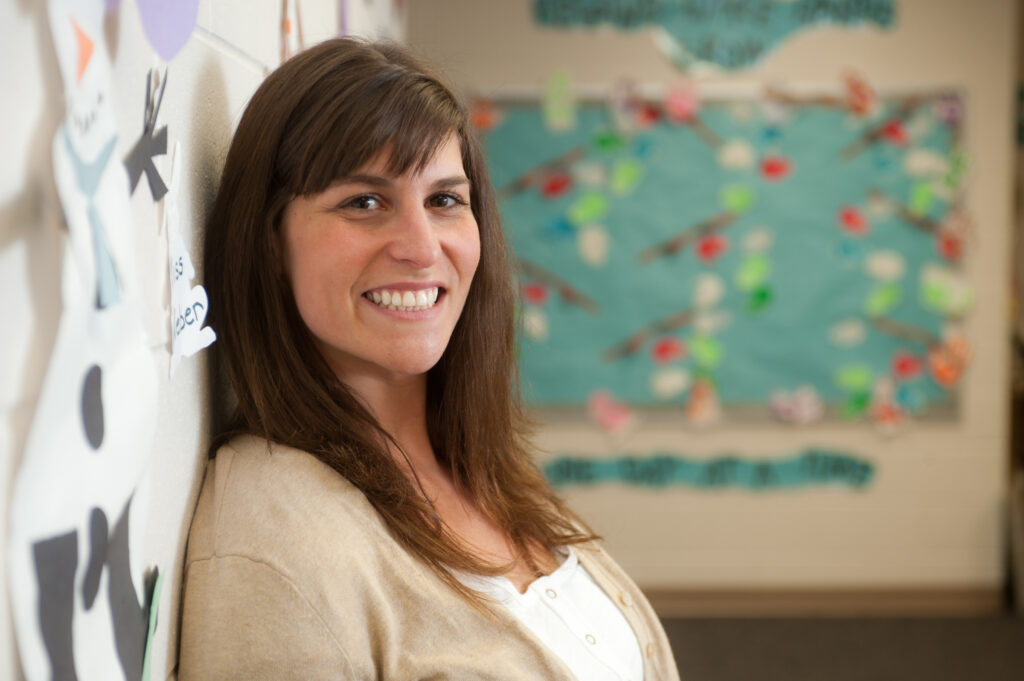Special Education (M.S.Ed)
The Skills to Help Students in Need
- Degrees/Options
- Master of Science in Education
- Length
- 16 weeks
- Locations
- Online
- Available Concentrations
- Intense Intervention; Mild Intervention

Why study Special Education?
A career in Special Education lets you touch the lives of some of society’s most vulnerable students. It’s a rapidly growing field with a constant need for more teachers. With a Special Education M.S. Ed. from Saint Francis, you’ll have the opportunity to effect real change in your school and community. Our online program offers the flexibility to complete your degree while balancing work and family.
$61,500
National Median Salary for Special Education Teachers
U.S. Bureau of Labor and Statistics
376,000
Projected New Jobs in Special Education, Projected Growth 2020-2030
U.S. Bureau of Labor and Statistics
Why Study Special Education at Saint Francis?
Special Education instructors are some of the most in-demand teachers in education, and a Special Education M.S.Ed. from Saint Francis is a flexible, affordable way to further your career in this field. Both licensure and non-licensure pathways are available. Our online courses are taught by highly experienced educators and education experts. Your degree program begins with 24 credits in the core curriculum, with an additional 9 credits in your chosen concentration (mild intervention or intense intervention). The Special Education program is nationally recognized by the Council for Exceptional Children (CEC)and is accredited by the Council for the Accreditation of Educator Preparation (CAEP).
Saint Francis offers fully online courses, taught asynchronously so you can do the work on your time, with structured deadlines to keep you on track to graduate quickly. Classes are taught in short eight-week sessions, with six start dates throughout the year, with some 16-week sessions, including a 16-week practicum and 16-week clinical internship, which serve as capstones for your degree. We provide the support of experienced online instructors and a network of alumni mentors to help you through graduation and beyond.
Saint Francis draws on decades of excellence and experience in education and Franciscan traditions and values that stretch back centuries but remain vitally relevant in today’s complex ethical landscape.
The Value of Saint Francis
Furthering your education is an investment in yourself and your future. Saint Francis promises a return on that investment and makes it easy to get an advanced degree at a cost that makes sense. Our programs are streamlined to help you achieve your degree with the fewest possible credit hours to save you time and money.
- 33 Credit Hours
- $535 per credit hour

“My Saint Francis professors knew I was working and there would be days they needed to be flexible with my assignments. The compassion and individual attention Saint Francis gives each student became a model for the individual compassion I need to show my students.”
Amy Frangella ’10 Saint Francis M.S.Ed. in Special Education Graduate
Faculty and Teaching Style
A Saint Francis degree begins with a foundation in Franciscan values and ethics and their application to issues in education. Our ethical focus underpins and informs every aspect of Saint Francis education. Our faculty are experts in their field who are driven by their values, making for a unique graduate program that aligns with your beliefs and empowers you to foster peace and justice in your schools and your community.
Outcomes
Career Paths of Our Graduates:
Graduates of the M.S.Ed. in Special Education program will master the 10 Interstate Teacher Assessment and Support Consortium (InTASC) standards:
- Learner Development
- Learning Differences
- Learning Environments
- Content Knowledge
- Application of Content
- Instructional Practice
- Planning for Instruction
- Instructional Strategies
- Professional Learning and Ethical Practice
- Leadership and Collaboration
Special Education candidates also master the standards set forth by the Council for Exceptional Children:
- Standard 1: Engaging in Professional Learning and Practice with Ethical Guidelines
- Standard 2: Understanding and Addressing Each Individual’s Developmental and Learning Needs
- Standard 3: Demonstrating Subject Matter Content and Specialized Curricular Knowledge
- Standard 4: Using Assessment to Understand the Learner and the Learning Environment for Data-Based Decision Making
- Standard 5: Supporting Learning Using Effective Instruction
- Standard 6: Supporting Social, Emotional, and Behavioral Growth
- Standard 7: Collaborating with Team Members